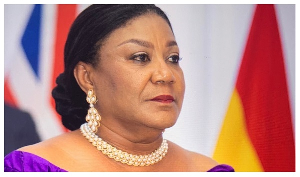Although the Petroleum Act, 2016, (Act 919), provides for the issuance of the reconnaissance licenses which would gather quality data on the country’s petroleum reserves, governments have failed to issue this license.
In view of this, the Civil Society Licensing Round Monitoring Group have prompted government on the crucial need to issue this license to ensure the availability of quality data to aid future bidding rounds of oil blocks.
“Government must start issuing reconnaissance licenses to gather quality data to aid future bidding rounds,” the Civil Society Group in Ghana’s First Oil Licensing Round Monitoring Report said.
“The cost for such an activity will be recovered from data fees during competitive tendering. Liberia used this approach to acquire data which enabled them to carry out competitive tendering,” It further explained.
Section 9 of the Act 919 (Sub-Section 1 and 2) states that, the Minister may, in consultation with the Commission, grant to a person, a petroleum reconnaissance license in respect of a defined area. The reconnaissance license grants to the licensed person a non-exclusive right to undertake data collection including seismic surveying and shallow drilling, and processing and interpretation or evaluation of petroleum data in the area specified in the license.
Licensing Rounds
Ghana’s first oil bid and licensing round was launched in October 2018, where six blocks were made available for the licensing round; three blocks to be awarded through an open and competitive bidding process, two through direct negotiations and one to be solely operated by Ghana National Petroleum Corporation (GNPC), the national oil company.
Bid and licensing rounds are now a global norm for resource-rich countries in selecting investors for upstream petroleum activities.
Importantly, quality of data and fiscal terms count in sustaining investor interest beyond the initial expression of interest, the Monitoring Group said.
In the case of Ghana, out of 60 applications received from 16 companies, only three companies progressed to submit bids after prequalification.
The report states that, while the licensing process was ongoing (competitive tendering and direct negotiation), the Ministry of Energy opened an escape window for companies to negotiate outside the licensing round process.
“This has the effect of undermining the competitiveness of the process,” It cautioned.
Although the selection process met the timelines set by the Ministry, the actual negotiations of petroleum agreements are yet to be concluded five months after the deadline.
This, the Monitoring Group indicates could portend corruption risks and negatively impact on future investor interest.
Performance of Licensing Process
The entire licensing and bidding process cumulatively scored 70 percent which is interpreted as Satisfactory on the adopted grading scheme. Thematic areas that were rated as good were adherence to procedural requirements under competitive bidding and the compliance with the calendar of events under the licensing round.
The analysis shows that compliance with the competitive tendering requirements of the licensing round was significantly better than that of the direct negotiations.
Click to view details



Business News of Monday, 11 May 2020
Source: goldstreetbusiness.com

















